The false idea that fossil fuels’ climate impacts are an “emergency” that requires us to rapidly eliminate fossil fuels has caused an energy emergency.
The “climate emergency” movement must be held accountable.
-
The world is experiencing the worst energy crisis since the 1970s, and it may end up being far worse.
Skyrocketing energy prices are driving price inflation in every area of life. Even in wealthy Europe we are seeing mass-hardship, deindustrialization, and fear of winter.1
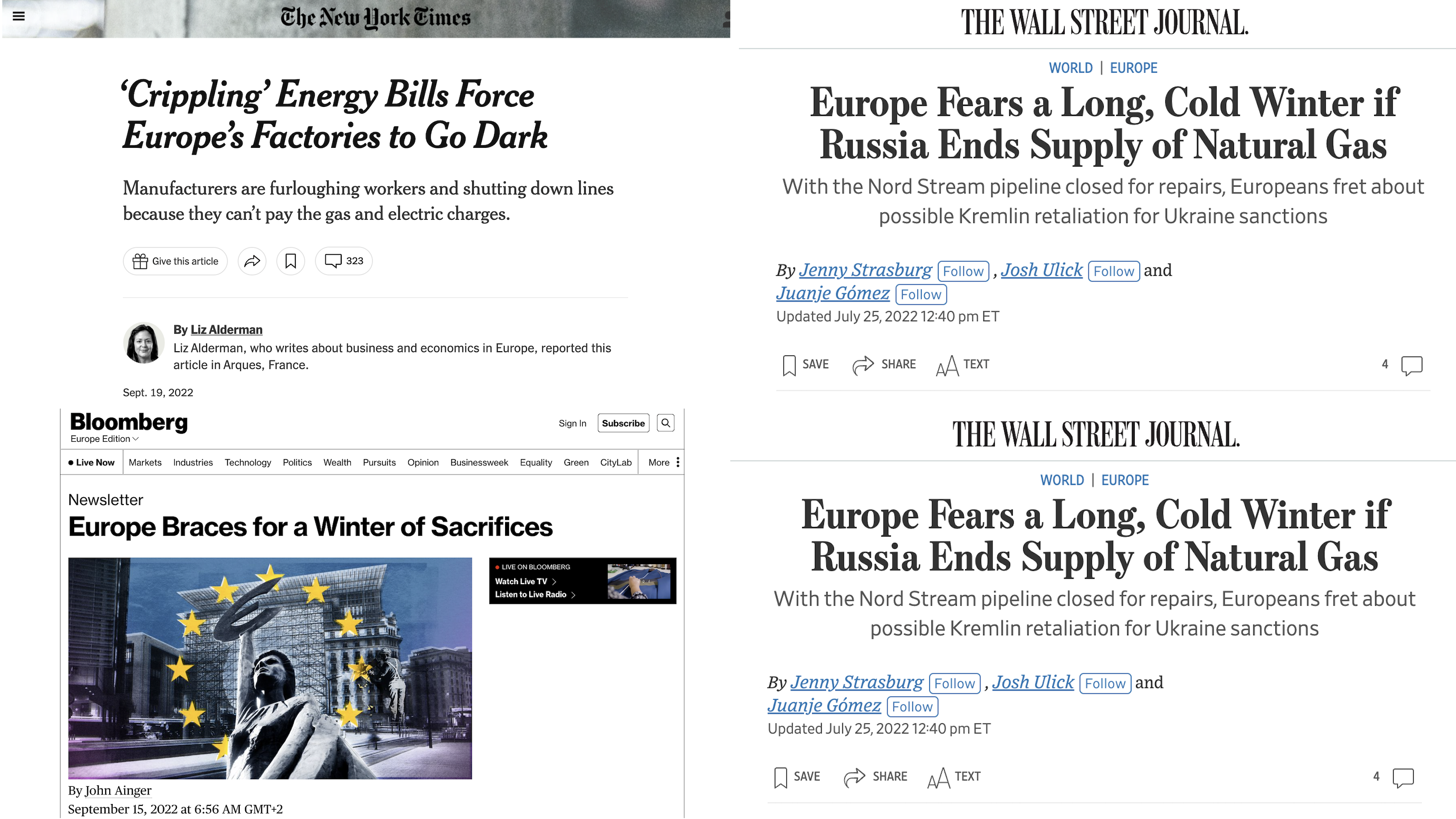
-
While America is suffering from the energy crisis and Europe is suffering far more, the worst-affected are poor nations—who are getting outbid for today’s scarce energy supplies. For example, we’ve seen power outages in Bangladesh, which has been outbid for natural gas by Europe.2
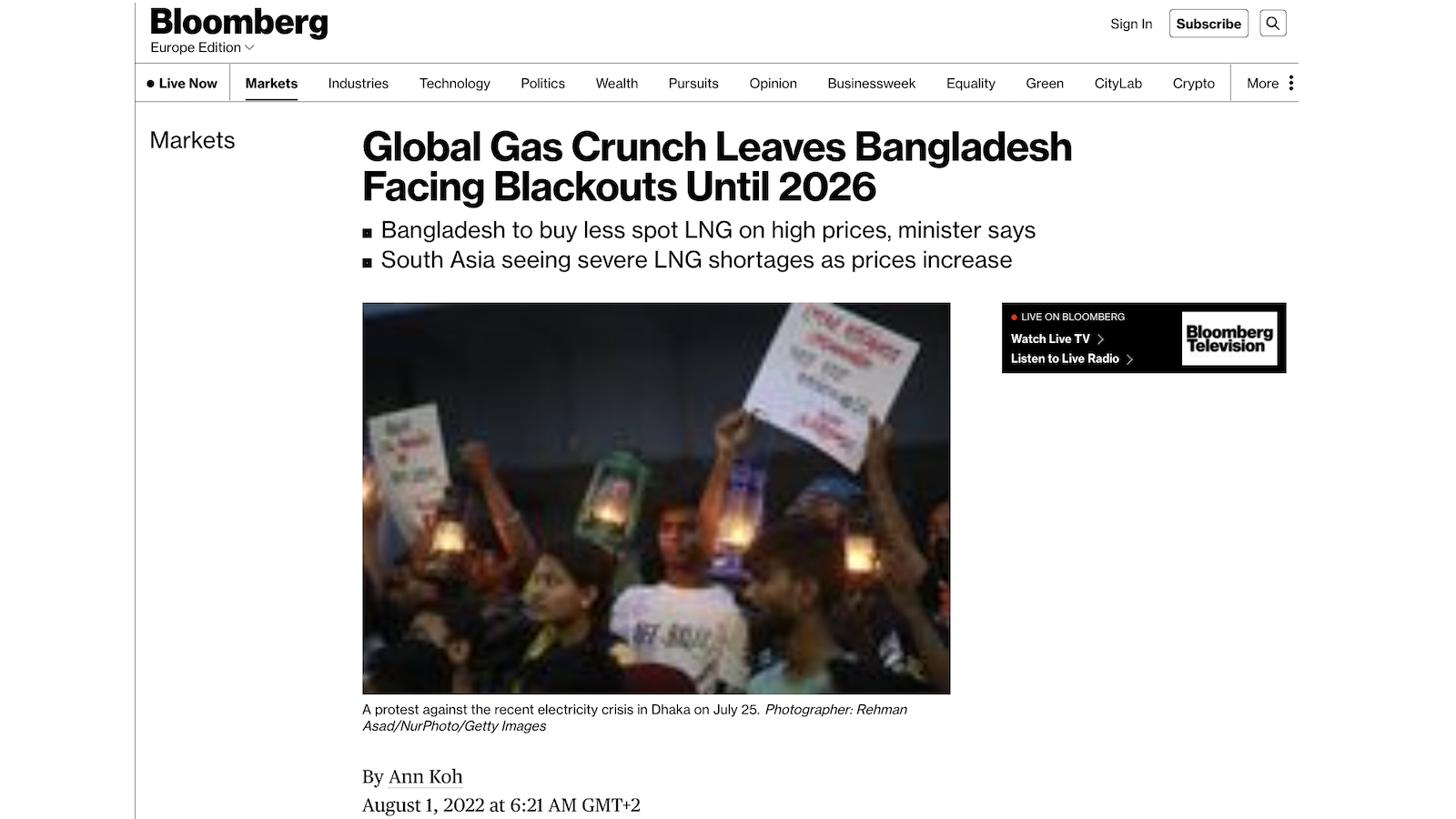
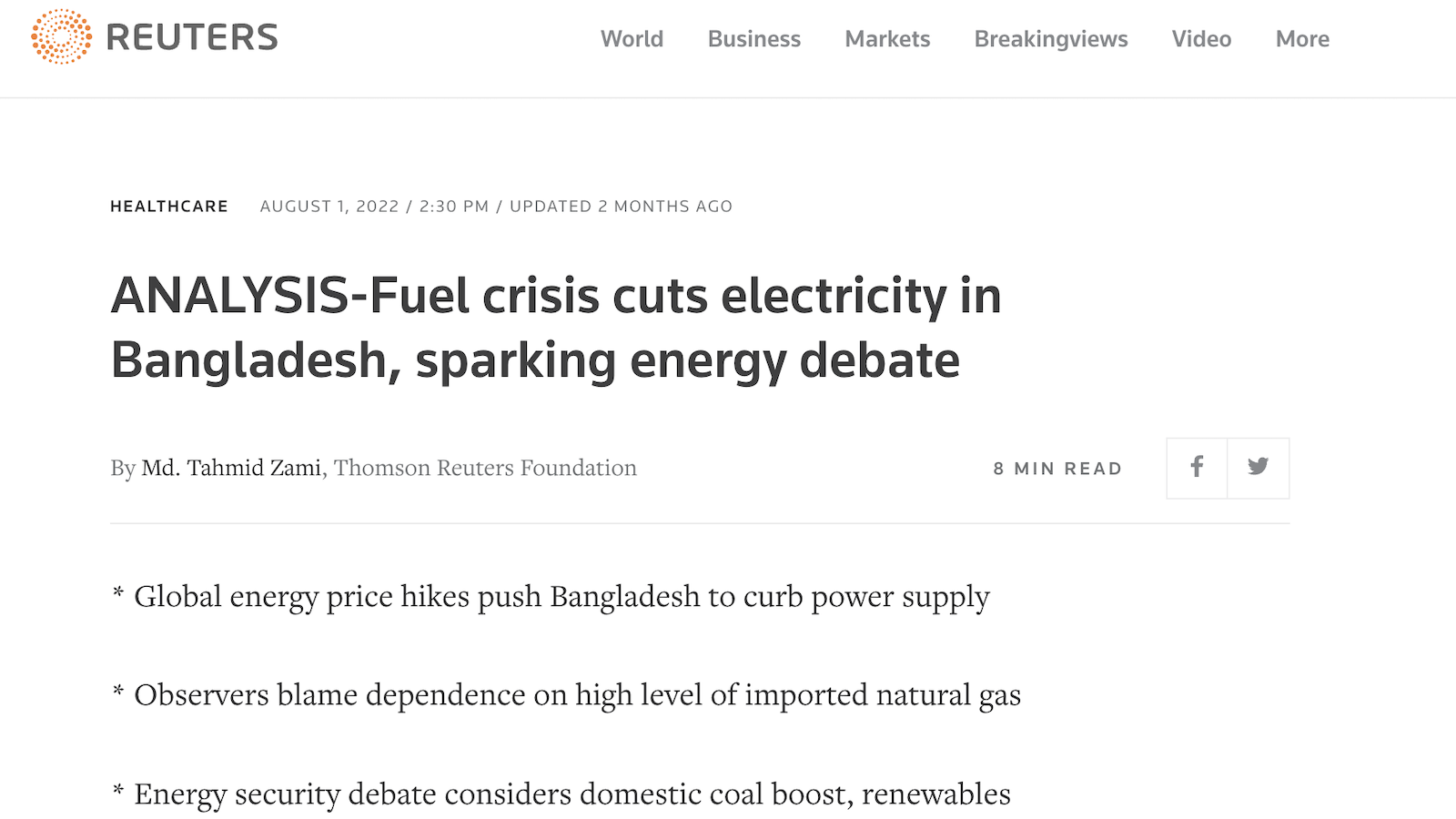
-
The global energy crisis constitutes an emergency—a dire and deadly problem requiring a swift, dramatic solution.
What’s the solution to the global energy emergency?
We must put a stop to its cause: the “climate emergency” movement’s campaign to rapidly eliminate fossil fuels.
-
While “climate change”—humans impacting climate—is real, “climate emergency” is not. The world is slowly becoming warmer—at a cold point in geological history, when many more people die of cold than of heat. This doesn’t at all justify rapidly restricting global fossil fuel use.3
-
The truth is that fossil fuels’ CO2 emissions have contributed to the warming of the last 170 years, but that warming has been mild—1° C, mostly in the colder parts of the world. And life on Earth thrived (and was far greener) when CO2 levels were at least 5X higher than today’s.4
-
Fossil fuels actually overall make us far safer from climate by providing low-cost energy for the amazing machines that protect us against storms, protect us against extreme temperatures, and alleviate drought. Climate disaster deaths have decreased 98% over the last century.5
-
Even the UN Intergovernmental Panel on Climate Change (IPCC), which has a history of catastrophizing fossil fuels’ climate impacts and ignoring their climate benefits, contemplates no scenario in which overall well-being declines due to climate change.6
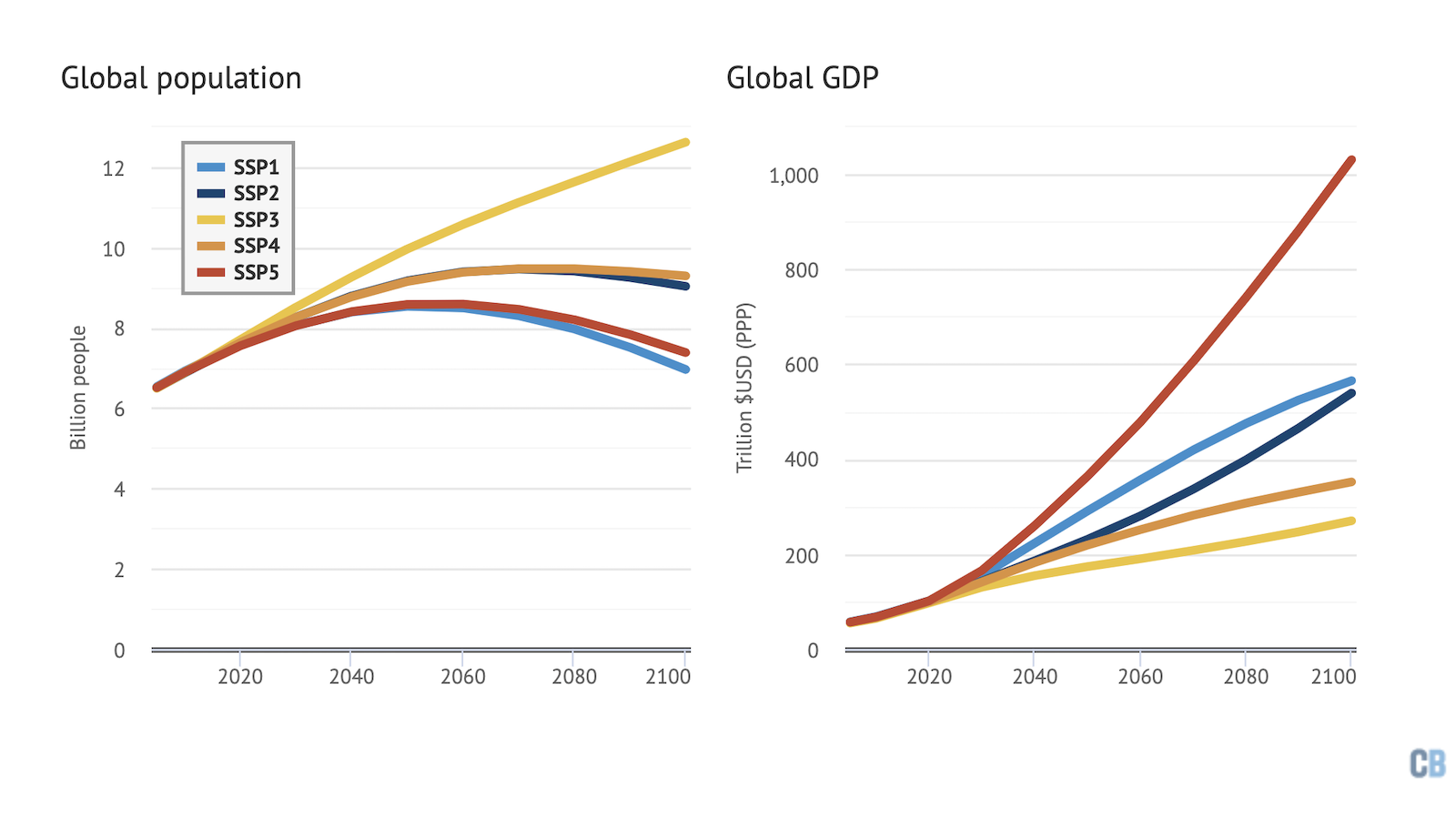
-
The only rational approach to reducing fossil fuels’ CO2 emissions is a long-term one based on liberating low-carbon innovation.
That will lead to the development of truly globally cost-competitive alternatives—most promisingly, low-cost, global-scale nuclear energy.7
-
Unfortunately, instead of recognizing that CO2 emissions are not an emergency and pursuing a long-term emissions-reduction policy of liberating low-carbon alternatives, our leaders declared “emergency” and started immediately restricting fossil fuels—with no viable replacement.
-
The “climate emergency” movement, centered in the West, has restricted 1) fossil fuel investment 2) fossil fuel production 3) fossil fuel transport
This has artificially suppressed fossil fuel supply, making industry unable to meet growing demand. Which means sky-high prices.
-
Suppressing fossil fuel investment
For fossil fuel energy to remain low-cost requires sufficient investment. But the “climate emergency” movement has used government and private entities, often under the banner of “ESG,” to punish and suppress it—meaning less fossil fuel supply.
-
Is it any wonder that, threatened with punishment, investment in oil and gas declined dramatically? Between 2011 and 2021, oil and gas exploration investments declined by 50%.
Less investment = less supply = higher prices.8
-
Suppressing fossil fuel production
For fossil fuel energy to remain low-cost for billions of people requires that producers be free to produce it all around the world.
The “climate emergency” movement has opposed it throughout the world, often successfully, increasing prices.9
-
The “climate emergency” movement pushed France, Germany, the UK, Bulgaria, Spain, Ireland, Denmark, and The Netherlands to place preemptive bans on fracking—the source of bounteous oil and gas production in the US.10
-
Suppressing fossil fuel transport
For fossil fuels to remain low-cost for billions of people we need to be able to easily transport them from where they are produced to where they are used. But the “climate emergency” movement has opposed transportation around the world.11
-
In the US, opposition to natural gas pipelines and LNG terminals has prevented us from offering cheap gas throughout the country and around the world. In Canada, home of staggering oil deposits, pipeline restrictions have limited their ability to bring oil to market.12
-
Consider the fate of the Keystone XL pipeline, which would have matched abundant, reliable Canadian heavy crude with US Gulf refining capacity. After over a decade of delays, Biden finally killed it. This made us and our allies more vulnerable to OPEC+.13
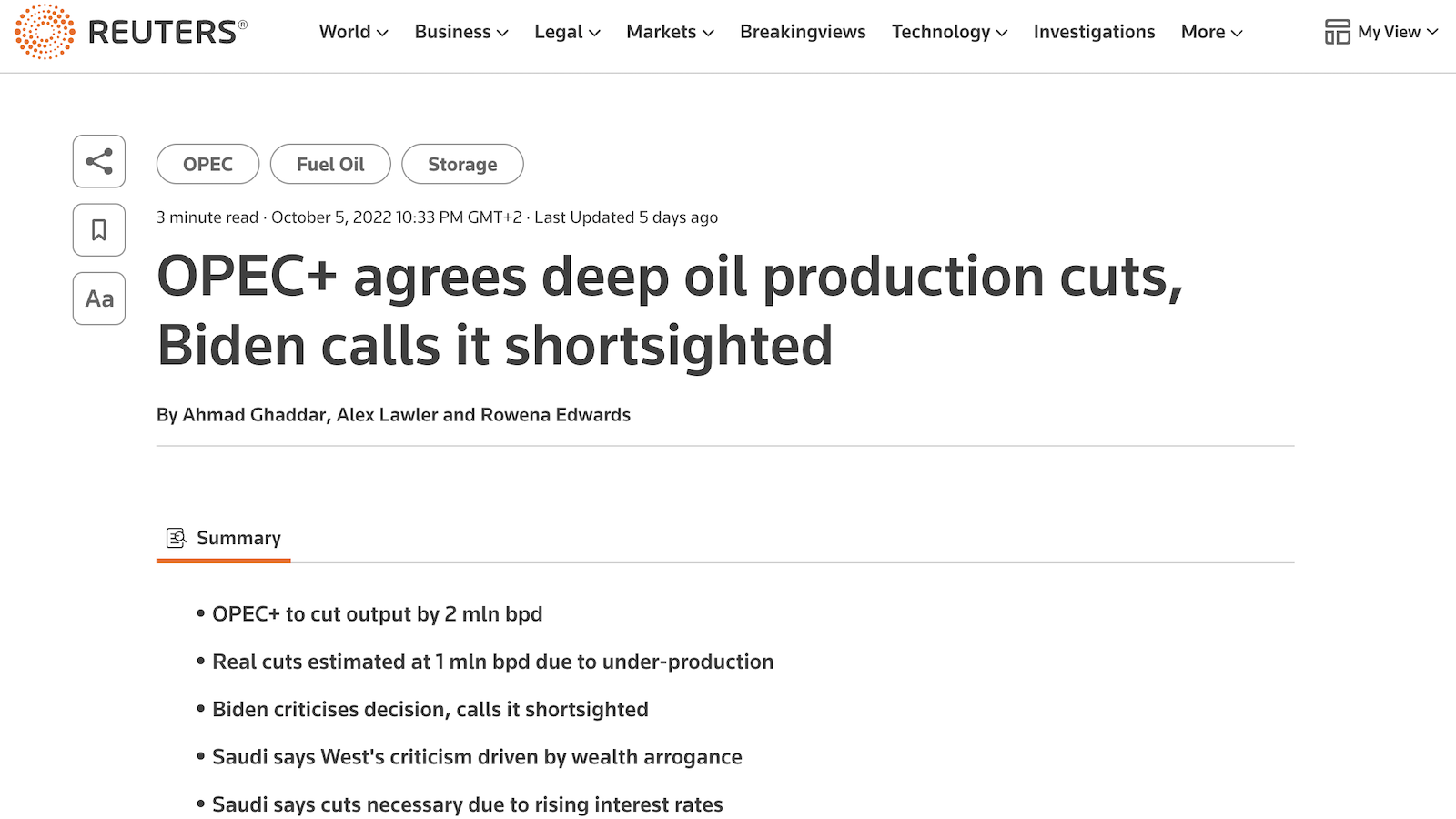
-
The “climate emergency” movement has rationalized its opposition to fossil fuel investment, production, and transport with claims that solar and wind could rapidly replace fossil fuels.
This has obviously not happened. Despite huge solar and wind subsidies fossil fuel demand has increased.
-
There was never any reason to expect solar and wind to replace fossil fuels. The world needs far more energy—3 billion people still use less electricity than a US refrigerator—so there’s no reason to expect lower demand for any form of cost-effective energy, let alone ultra-versatile fossil fuels.14
-
Solar and wind’s basic problem is unreliability, to the point they can go near zero at any time. Thus they don’t replace reliable power, they parasite on it. This is why they need huge subsidies and why no grid is near 50% solar or wind without huge parasitism on reliable neighbors.15
-
The “climate emergency” movement successfully perpetrated two deceptions on the world
1. we needed immediate, drastic action against fossil fuels.
2. unreliable solar and wind would save us from adverse consequences.
The cost of these deceptions has been a global energy emergency.
-
The “climate emergency” movement is trying to deny all responsibility for today’s energy emergency.
They blame the emergency on Russia’s invasion of Ukraine—which is a secondary factor. Or, they chastise the fossil fuel industry for not meeting demand—which is absurd and unjust.
-
Today’s high fossil fuel prices are not primarily a “Putin price hike.”
They are caused by global anti-fossil-fuel “climate emergency” policies—which made fossil fuel prices artificially high before Putin’s war and prevented the free world from quickly increasing production in response.16
-
The “climate emergency” movement has the gall to chastise the fossil fuel industry for not sufficiently ramping up production post-pandemic and post-Putin-invasion. But this insufficient ramp-up is the result of anti-fossil-fuel policies that restrict and punish new attempted production!
-
Scary fact: the “climate emergency” movement has caused an energy emergency just by achieving a tiny fraction of its goals. While it has advocated rapidly reducing fossil fuel use, it has only succeeded globally at slowing the growth of fossil fuel use.
And even that is catastrophic.
-
If just restricting the growth of fossil fuels in a world that needs far more energy is catastrophic, what would it mean to reduce CO2 emissions by the 50% many “climate emergency” advocates want by 2030 and the 100% they want by 2050?
Global misery and premature death.
-
Summary: the cause of today’s global energy emergency is the “climate emergency” movement restricting the supply of desperately-needed fossil fuels in the name of 1) the false idea that climate impact = emergency 2) the nonexistent ability of solar and wind to rapidly replace fossil fuels.
-
The solution to the global energy emergency is to reject the “climate emergency” movement and embrace the freedom to use all forms of energy.
This will: 1) Ensure plenty of energy going forward. 2) Maximize the speed of at which truly cost-competitive alternatives are deployed.
-
To learn more about a pro-human, pro-freedom approach to CO2 emissions, read this:
-
To learn more about how energy freedom can create a future of global energy abundance, read this:
###References
-
NYT - ‘Crippling’ Energy Bills Force Europe’s Factories to Go Dark
WSJ - Europe Fears a Long, Cold Winter if Russia Ends Supply of Natural Gas
Bloomberg - Europe Braces for a Winter of Sacrifices
Washington Post - The E.U. is preparing for blackouts this winter, amid an energy crisis↩
-
Bloomberg - Global Gas Crunch Leaves Bangladesh Facing Blackouts Until 2026
Reuters - ANALYSIS-Fuel crisis cuts electricity in Bangladesh, sparking energy debate↩
-
NOAA - Climate change rule of thumb: cold "things" warming faster than warm things
“The best estimate of CO2 concentration in the global atmosphere 540 million years ago is 7,000 ppm, with a wide margin of error.”
Patrick Moore - THE POSITIVE IMPACT OF HUMAN CO2 EMISSIONS ON THE SURVIVAL OF LIFE ON EARTH↩ -
For every million people on earth, annual deaths from climate-related causes (extreme temperature, drought, flood, storms, wildfires) declined 98%--from an average of 247 per year during the 1920s to 2.5 in per year during the 2010s.
Data on disaster deaths come from EM-DAT, CRED / UCLouvain, Brussels, Belgium – www.emdat.be (D. Guha-Sapir).
Population estimates for the 1920s from the Maddison Database 2010 come from the Groningen Growth and Development Centre, Faculty of Economics and Business at University of Groningen. For years not shown, population is assumed to have grown at a steady rate.
Population estimates for the 2010s come from World Bank Data.↩
-
CarbonBrief - Explainer: How ‘Shared Socioeconomic Pathways’ explore future climate change↩
-
Alex Epstein - A pro-human, pro-freedom policy for CO2 emissions↩
-
Financial Times - Embrace high fossil fuel prices because they are here to stay
Michael Shellenberger - How Climate Activists Caused the Global Energy Crisis↩
-
Alex Epstein - Talking Points on how Europe's fracking bans have contributed to its natural gas crisis↩
-
Irish Times - Ireland joins France, Germany and Bulgaria in banning fracking
Reuters - UPDATE 1-Dutch government bans shale gas drilling for 5 years
Financial Times - End to UK fracking ban triggers backlash
S&P Global - Spain passes climate bill banning new oil, gas exploration
Climate Change News - Denmark to reconsider fracking ban after Total shale tests↩
-
Greenpeace - Greenpeace blocks Spanish gas tanker as EU ministers meet on energy crisis
Reuters - Dakota Access pipeline suffers U.S. Supreme Court setback↩
-
Canadian Association of Petroleum Producers - Canadian oil constrained by lack of pipelines, market access↩
-
Reuters - OPEC+ agrees deep oil production cuts, Biden calls it shortsighted
AP News - Keystone XL pipeline halted as Biden revokes permit
TC Energy - TC Energy confirms termination of Keystone XL Pipeline Project
Competitive Enterprise Institute - Lessons from the Demise of ANWR and Keystone XL↩
-
Robert Bryce - A Question of Power: Electricity and the Wealth of Nations↩
-
Alex Epstein - Talking Points on the "Other countries have 80% clean electricity" argument↩
-
Alex Epstein - Talking Points on US Democrats engaging in epic denial on oil and gasoline prices↩
